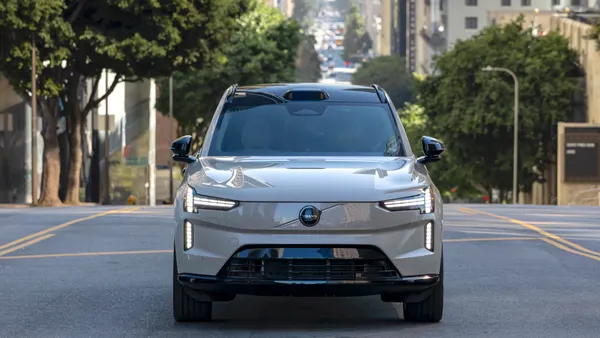Editor's note: This story is part of the WardsAuto digital archive, which may include content that was first published in print, or in different web layouts.
Special Coverage
Convergence
DETROIT – In the future, consumers – not automotive executives – will sign off on vehicle component designs, says Mecel AB.
The Sweden-based software supplier predicts consumers someday will be able to download car-radio head-unit displays to suit their personal tastes.
“Just as you buy a new skin for your phone, in the future you will have different (display) styles,” Managing Director Kent Eric Lang tells Ward’s at the Convergence Transportation Electronics Conference here.
Mecel, a wholly owned subsidiary of Delphi Corp., has developed a suite of digital tools, dubbed Populus, to speed the development of new display designs. This affords quick changes.
“You can do them very late, when you have the car ready, with the designers and the top managers are standing there (evaluating) the car,” Lang says.
By changing the database from which designs originate, a contemporary display could be changed to something more elegant, depending on brand character.
However, Lang envisions a day when consumers make these changes on their own, at a time of their choosing. “This could be another revenue stream for the OEM,” he adds.
According to John Waraniak, Specialty Equipment Market Assn. vice president-vehicle technology, this is how consumer-electronics companies such as Apple Inc. avoid the profit-sapping practice of re-engineering.
Apple’s iPod is a single product, Waraniak says during a panel discussion that touches on personalization, but consumers have their choice of hundreds of accessories that can make each unit unique.
Meanwhile, Mecel is pushing for ever-wider adoption of the Automotive Open System Architecture (Autosar) electronics standard. And while support for the change has the necessary “critical momentum,” North America lags far behind Asia and Europe, Lang claims.
Autosar skeptics believe “it is a competitive advantage to have their own standard and that their internal specifications are better than their competitors,” Lang says.
But, he adds, this is short-sighted.
Lang says electronics are a lightning rod for consumer complaints, so every effort should be made to ensure features such as the human-machine interface are developed with due care.
Adopting an industry-wide standard on which to base new products “is the way to improve quality and also cut costs,” he says.








